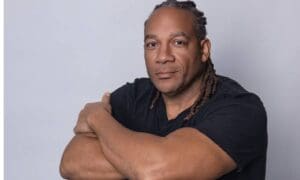by Sandy Whittle
Ashley Stoll dreamed she’d move to Nashville and work for a record label. After graduating from Fayette County High School in 2001, she earned a degree in marketing from Georgia State University. She had always been creative–a talented writer and outside-the-box thinker. She wanted to set the marketing world on fire.
But then Liberia called.
In pursuit of her first “real” job after graduating from college, Stoll learned of an opportunity to travel to Liberia, West Africa, with Peachtree City United Methodist Church. Liberia was devastated by almost 14 years of civil war. Families were torn apart by the ravages of war, and the orphan population had exploded. Three teams would stay for 10 days and work to build a school for an orphanage and its surrounding community. Stoll joined a team. That one month would change the trajectory of her life.
Stoll distinctly remembers the trip from the airport to her team’s guest house in Monrovia. It was dark outside, and exhaustion had set in from the long flight. As she looked out of the dirty van windows, she saw people walking with flashlights to light their way. She observed an illuminated cluster of palm trees and said she clearly heard God’s voice saying, “Welcome home. Stay awhile.”
The month in Liberia was marked with highs and lows. There were newly-formed friendships and the fulfillment of hard, physical labor, but when the second U.S. team joined Stoll’s group, she got ill and lost her voice. While she struggled to communicate with this new group of co-laborers, she also began to understand the importance of her presence with the orphan children. Although communication was difficult, something as simple as sitting under the shade of a massive tree with them provided a reassurance the orphans needed and craved. At the end of the month-long stay, Stoll and her teammates said goodbye to the children and boarded the crowded van, headed for the airport. They had given their sweat and toil to the projects in Liberia, and had created friendships with the orphans, but jobs and families in the U.S. beckoned. Stoll had difficulty separating from the sobbing children–they had shared validation, love and attention. This hot, sandy, war-ravaged land and its hurting people had become a part of her heart. Stoll said she began to think her real purpose in Liberia was not just to build a school, but to build life. She crossed the tarmac and mounted the steps to the plane. As she slowly turned for one last look back, Stoll said she whispered to God that if she was to return, he would have to provide a way.
Returning to Fayetteville, Stoll searched online for any information she could find about Christian relief organizations that provided support to Liberia’s orphans. She eventually connected with a small non-governmental organization, Orphan Relief and Rescue (ORR). Its mission is to be a voice with action for orphans. It was the perfect fit.
Stoll took a job as a manager of ORR’s Relief Program and moved to Liberia in March 2008. She ran the feeding programs for the orphanage homes in ORR’s care, and taught the children about nutrition, healthcare and hygiene. After two years, she assumed leadership of the Child Development Program. Her days were filled with sharing books, activities and God’s love with around 150 orphan children. She experienced fulfillment and joy, but heartache and pain at the same time. One painful memory Stoll has is of a pregnant Liberian teen she mentored, who was devastated when the directors of her orphanage home planned to send her out. The teen was faced with giving birth alone, homeless and afraid. Another time, Stoll rescued a sick man lying in the road beside a dumpster with no one to care for him.
Working alongside the Ministry of Social Welfare as ORR’s government liaison, Stoll learned that the wounds of war heal slowly.
Liberia was and still is rebuilding. Electricity and running water are luxuries. Stoll said she missed family gatherings, movies with friends, Chick-fil-a sandwiches and climbing the corporate ladder, but she was stretching her limitations and God was showing her his plan for her life. Stoll wanted to help the illiterate and unemployed adults prevalent in Liberia and elsewhere in the world. She scouted a space and made strides toward opening a community reading room, but the plan crumbled in the end. So, Stoll returned to the U.S. to rest, pray, seek counsel from mentors and think about her next move.
The ebola crisis in West Africa is preventing her immediate return to Liberia, but Stoll continues to pray, plan and work. She recently began a 501(c)(3) called Red Meets Green. Red depicts Liberia’s hurtful and bloody past while green represents hope and new life. Stoll intends to be an agent of hope for the Cooper Beach Community in Liberia by opening the doors of a new community center and bolstering Liberian families’ success. She has rented and renovated a house for literacy programs and vocational training (such as sewing and jewelry making), and for restoration classes, providing emotional healing from the deep wounds of war. Stoll said she longs for the day when she can return to Liberia and continue her work.












Leave a Comment
You must be logged in to post a comment.